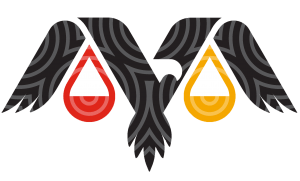MEDIA RELEASE 23 April 2022
Victorian Aboriginal Legal Service (VALS)
Over 30 years ago, the Royal Commission into Aboriginal Deaths in Custody (RCIADIC) recommended decriminalising public intoxication in all states and territories across Australia. Of the 99 Aboriginal deaths in custody that were investigated by the RCAIDIC, 35% involved Aboriginal people who were detained in relation to public intoxication. Since RCIADIC, more lives have been lost as a result of this offence, including much-loved mother, grandmother, sister and proud Yorta Yorta woman, Aunty Tanya Day.
VALS is disappointed that the decriminalisation of public intoxication will not occur as planned in November 2022 as every extra day it takes to implement this reform is another day that Aboriginal and Torres Strait Islander people are being targeted and locked up under the existing laws. This necessary and overdue reform will save lives if it is implemented properly. Given that the reform is yet to be piloted, VALS supports the extension of the implementation period so that it is done right.
There must be no further delays.
The Government must utilise this extension to prioritise the development and implementation of the public health response. This reform requires a fundamental shift from a justice to a health response. Victoria Police and the Police Association of Victoria must take a back seat and allow those who have expertise in developing a health response to develop the new public health model and embrace self-determined therapeutic approaches that work for what it is a public health issue not a justice one.
The Expert Reference Group on Decriminalising Public Intoxication – which was established by the Government to provide advice on this reform – set out the core components of a state-wide health response. Importantly, it emphasised that the Government must fund the health response adequately, to ensure that the role of police is minimised. We do not accept that police should be given a prominent role as First Responders, simply because the Government will not adequately invest in the health response.
Last December, the Government announced that it will trial the new health response in four sites across Victoria. Aboriginal self-determination must be at the forefront of these trials, through Aboriginal-led responses in each of the trial sites. Aboriginal communities must be provided with adequate time, resources and the necessary information to develop sustainable and effective responses, and to support our people when they need help.
Aboriginal and Torres Strait Islander voices must be central to the design of the public health model. We are justifiably concerned about any attempt to give Victoria Police a prominent role in the new model. The views of Victoria Police and The Police Association must not be prioritised over the voices of our communities, who have suffered the most from public intoxication laws.
VALS is of the view that the role and powers of first responders in the health response must be guided by the following:
- Police officers and Protective Service Officers (PSOs) should not be first responders in a health response to public intoxication.
- If Victoria Police are involved in the health response as first responders, their role must be strictly limited, to circumstances where there is a “serious and imminent risk of significant harm to the individual or other individuals”. Police should not be given powers to detain someone in a public place while they try and locate a place where the person can safely sober up.
- Individuals must never be detained in police cells or health facilities because they are intoxicated in public.
- If any new powers are introduced for first responders, there must be robust safeguards and accountability mechanisms in place to ensure that these powers are not abused.
Our people are overpoliced and overincarcerated. The Government has committed to the justice targets in the new Closing the Gap agreement. Properly implementing the public intoxication reforms, fixing Victoria’s broken bail laws and raising the age of criminal responsibility to at least 14 will go a long way to achieving that commitment.
Find more information about the decriminalisation of public intoxication on our website.
Quotes Attributable to Nerita Waight, CEO, Victorian Aboriginal Legal Service
“It is thanks to the advocacy of the Day family that the Government finally committed to decriminalise public intoxication in 2019. We continue to support the Day family in their ongoing advocacy on this issue.”
“Aboriginal communities in Victoria have waited long enough for this reform. Racist policing across Victoria means that our people continue to be disproportionality locked up for public intoxication. It is only a matter of time before we lose another member of our communities. The Government must prioritise the public intoxication reforms immediately.”
“This reform requires a fundamental shift from a justice to a health response. Development of the health response must be led by health experts, and the development of culturally safe responses for Aboriginal people must be led by Aboriginal communities. Victoria Police and The Victorian Police Association should not play a leading role in these reforms.”
“The Governments tough on crime policies have disproportionately affected our people. The Aboriginal imprisonment rate has almost doubled in the last ten years and Aboriginal women are the fastest growing demographic in Victoria’s prisons. The Government must fix the overincarceration of our people by properly implementing the decriminalisation of public intoxication, fixing Victoria’s broken bail laws and raising the age of criminal responsibility.”

